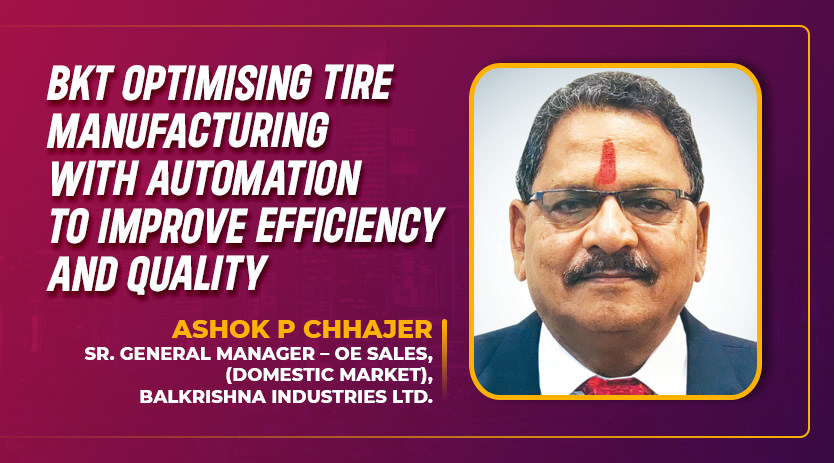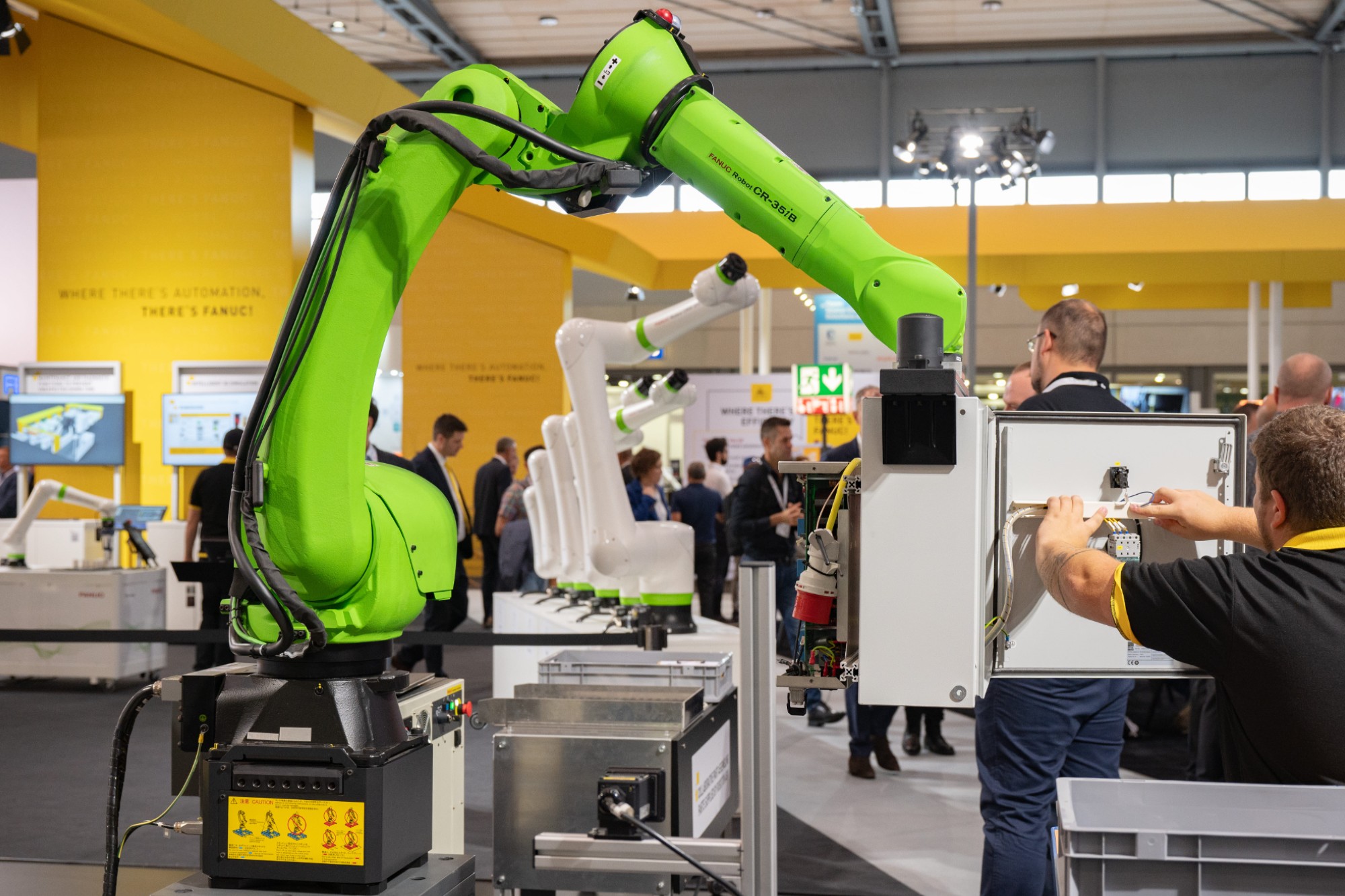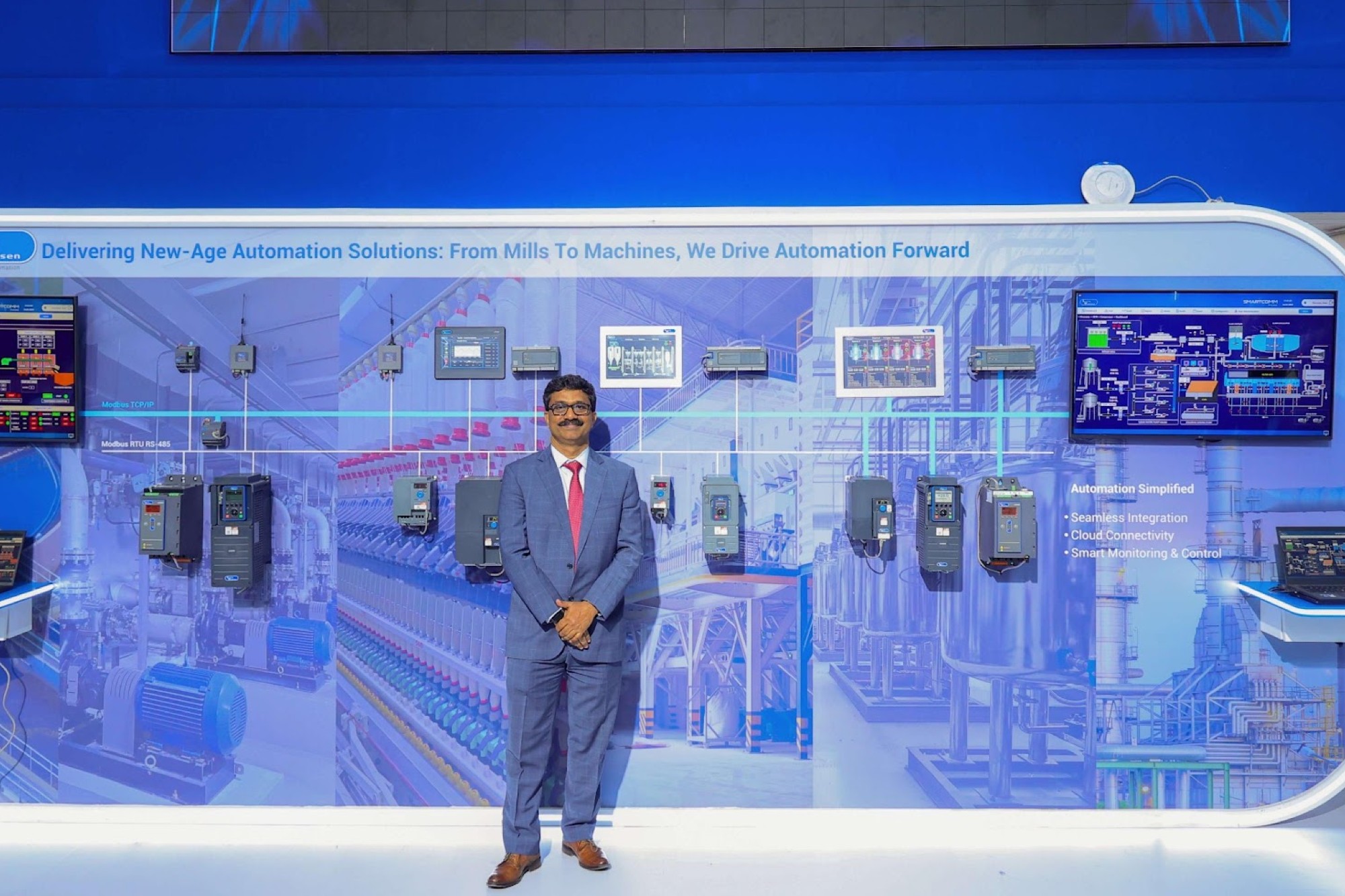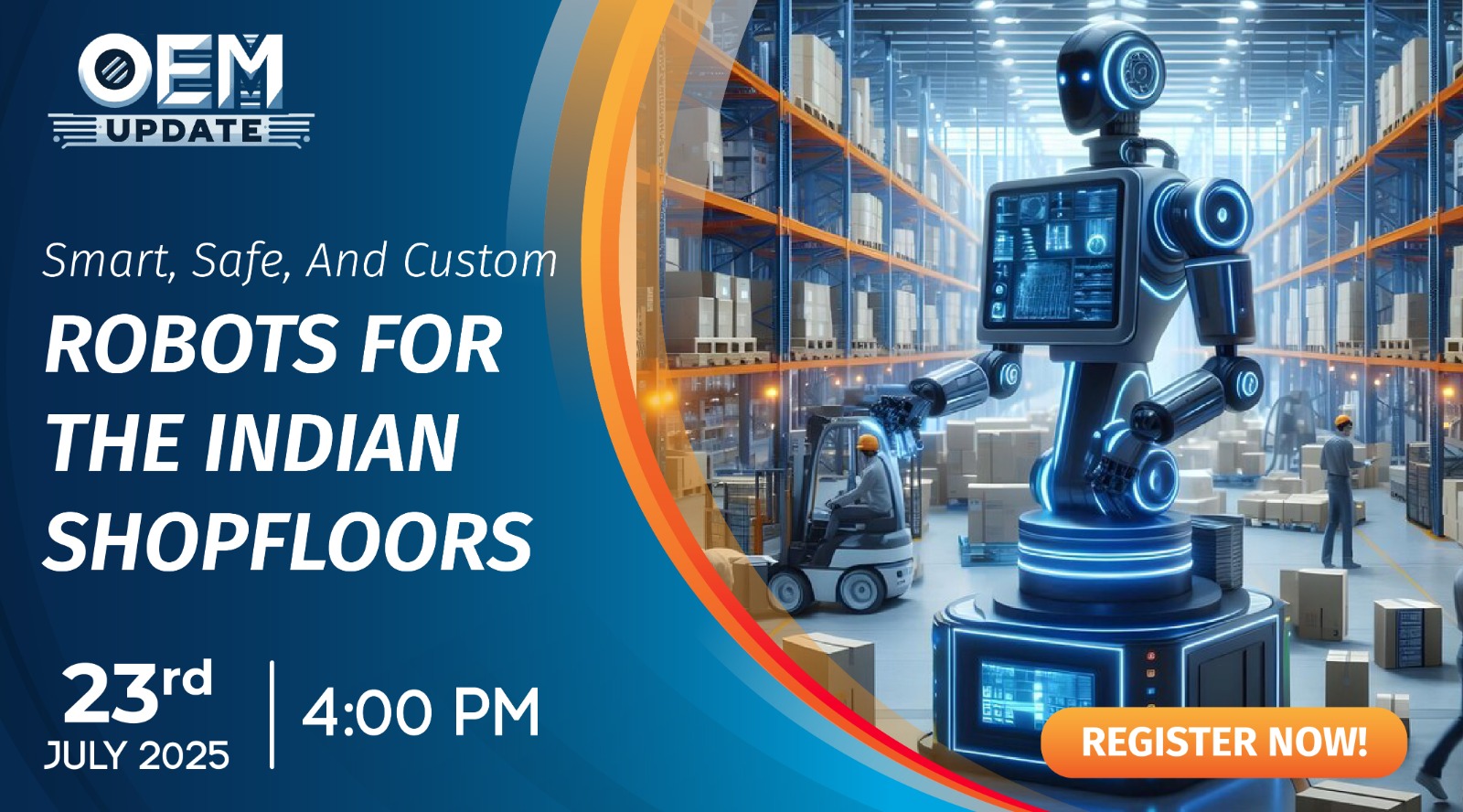BKT optimising tire manufacturing with automation to improve efficiency and quality
By OEM Update Editorial May 2, 2023 1:55 pm IST
“A passion for innovation and a commitment to continuous improvement is at the core of our business.”
The colossal Indian tire manufacturer, BKT Tires, is a multinational which continues to achieve positive growth through a focus on new products and expanding its operations. The company aims to achieve a 10 percent global market share without neglecting human values and the environment. In an exclusive interaction at the BKT Bhuj plant visit, Ashok Chhajer, Sr. General Manager – OE Sales, (Domestic Market), Balkrishna Industries Ltd., talks about the latest automation technologies and sustainable practices.
What are some benefits of advanced technology and automation that are installed in the Bhuj plant, and are there any potential drawbacks or risks to relying heavily on automation?
We have made our manufacturing process smoother, speedier, and more efficient thanks to the automation of everything from the handling of raw materials to processing.The transition from manual systems to automation has eliminated human error, and product damage thus improving the overall quality. This is especially crucial in labour-intensive tasks such as tire manufacturing, where automation significantly improves the finished product.
BKT’s Bhuj plant today sees more efficient machinery installed, with features that make it possible to work faster and more precisely, increasing the quantity of production and the quality of the finished product. This means, for example, that the amount of product discarded is reduced, increasing the sustainability of the manufacturing process and consequently reducing production costs; processes are also becoming increasingly reliable and accurate, and most importantly for BKT, occupational risks are drastically reduced and worker comfort improved.
What are the latest manufacturing practices that have been implemented in the Bhuj plant to optimise production?
BKT has invested a huge capex in a new approach to production at its plant – making the process more sustainable and reducing CO2 emissions. For example – the energy produced during the manufacture of tires acts as a by-product that helps power the plant. Another is ‘Vertical Integration’, the carbon black one of the major raw materials in tires is produced in-house, so is having an in-house mold plant, which ensures complete reliability and autonomy.
In BKT’s Bhuj plant, we have installed the latest tech in tire manufacturing like robotic ply-cutting technology, which allows for precise and efficient cutting of tire plies, reducing waste and improving productivity. Robotic painting technology is being utilized for both inside and outside tire painting, which ensures consistent paint application, reduces overspray, and improves the overall quality of the finished tire. Additionally, BKT has installed a mechanism that collects and recycles excess materials generated during tire manufacturing, thus reducing waste and optimising material usage. The latest manufacturing practices in tire manufacturing plants focus on leveraging advanced technologies, automation, data analytics, and continuous improvement initiatives to optimise production processes, reduce waste, improve quality, and enhance overall efficiency.
What manufacturing growth do you say there is in the off-highway tire market?
It’s important to note that the market is not stagnant but growing and we see no signs of it slowing down. Let me give you an example of the mining industry in India. As long as we rely on coal for power generation and continue to import coal, there is a need to increase coal production, for which we need efficient and large equipment with reliable tires that can provide faster output. This is just one example that illustrates how the quality of equipment and tire is crucial for a country’s growth.
A tire consists of approx. 30 percent of carbon black making it a critical raw material. BKT embarked on a backward integratio program of setting up Carbon Black manufacturing facilities in 2017, which has proved to be a boon especially, in the scenario when the industry was facing a crunch in the raw materials supply. Today, the company’s carbon black product is utilised captively, and balanced is sold in the markets under the brand name ‘BKT Carbon’.
The current production of about 165,600 MT per annum of Carbon Black comprises ‘Hard Grade’ Carbon and ‘Soft Grade’ Carbon. Hard Grade Carbon is used in the tire tread and Soft Grade is used in the casing compound to improve tire strength & durability and generate less heat. Going forward, in line with the business plan, BKT’s goal is to increase carbon black production to 192,600 MT per annum by 2023. In addition, BKT has already initiated working on the production of ‘Specialty carbon black’, which is suitable for use in specific applications such as paints, plastics, and inks.
BKT has tried to reduce its carbon footprint at the Bhuj factory by using renewable energy and optimising its water and other resources. How important is it for companies to prioritise sustainability in their manufacturing operations, and what challenges may they face in doing so?
Companies that prioritise sustainability in their manufacturing operations can reap several benefits, such as energy and resource efficiency, waste reduction, and recycling, which can lead to cost savings in the long run. By optimising processes and minimising waste, companies can reduce production costs, lower operational expenses, and enhance their bottom line.
Companies are subject to various environmental regulations and standards. By prioritising sustainability in their manufacturing operations, companies can ensure compliance with these regulations, mitigate the risks of penalties, fines, and legal liabilities, and safeguard their business operations. Embracing sustainability can drive innovation and open new market opportunities. Developing eco-friendly products, incorporating renewable energy sources, and adopting circular economy practises can position companies as leaders in the market and enable them to tap into growing consumer demand for sustainable products and services.
Therefore, we must prioritise sustainability, if we are truly serious about securing a better future for our children, not just ourselves or our families, but our society, country, and nation. BKT published its first sustainability report last year, which can be downloaded or read online from our website.
Cookie Consent
We use cookies to personalize your experience. By continuing to visit this website you agree to our Terms & Conditions, Privacy Policy and Cookie Policy.
















